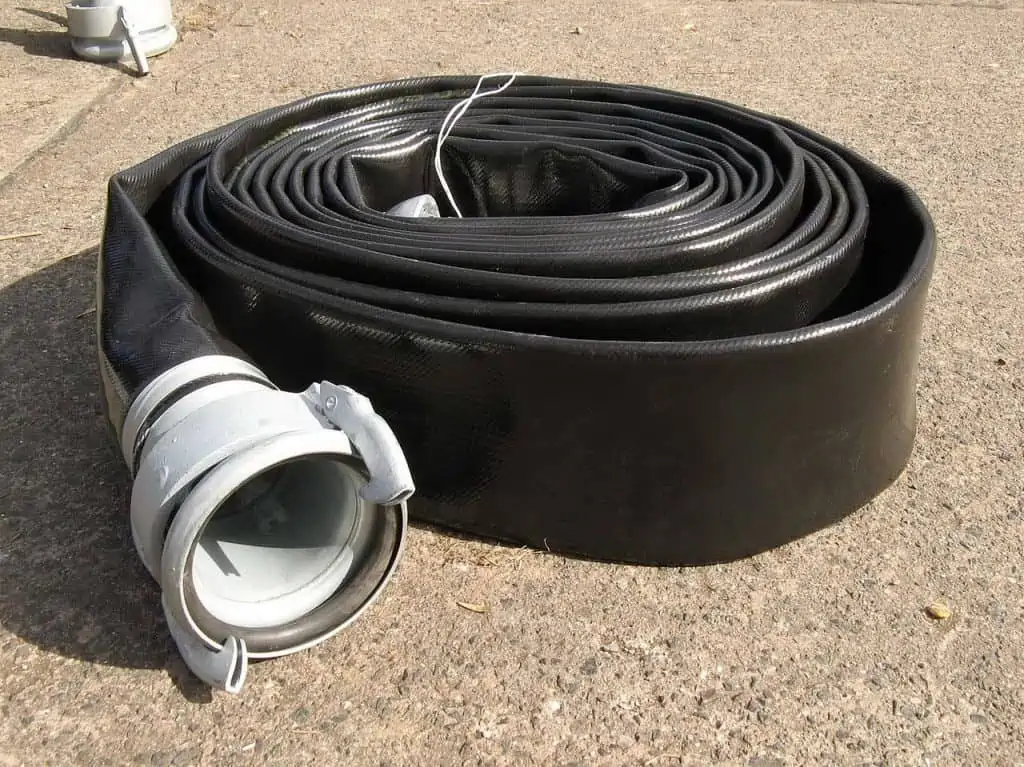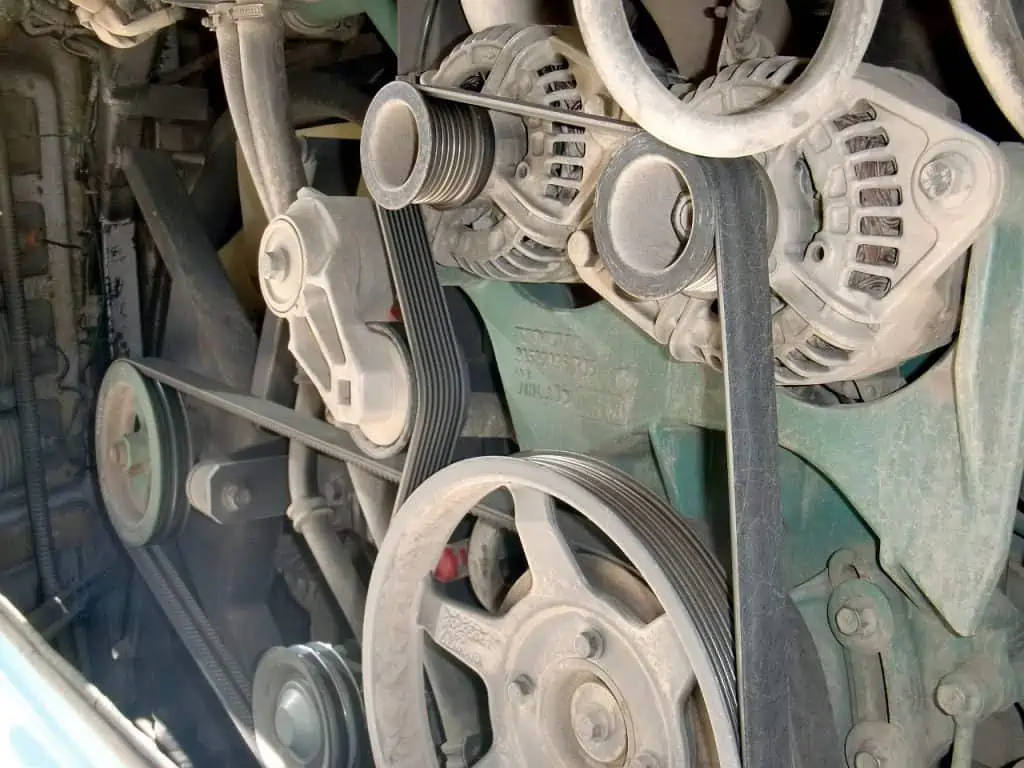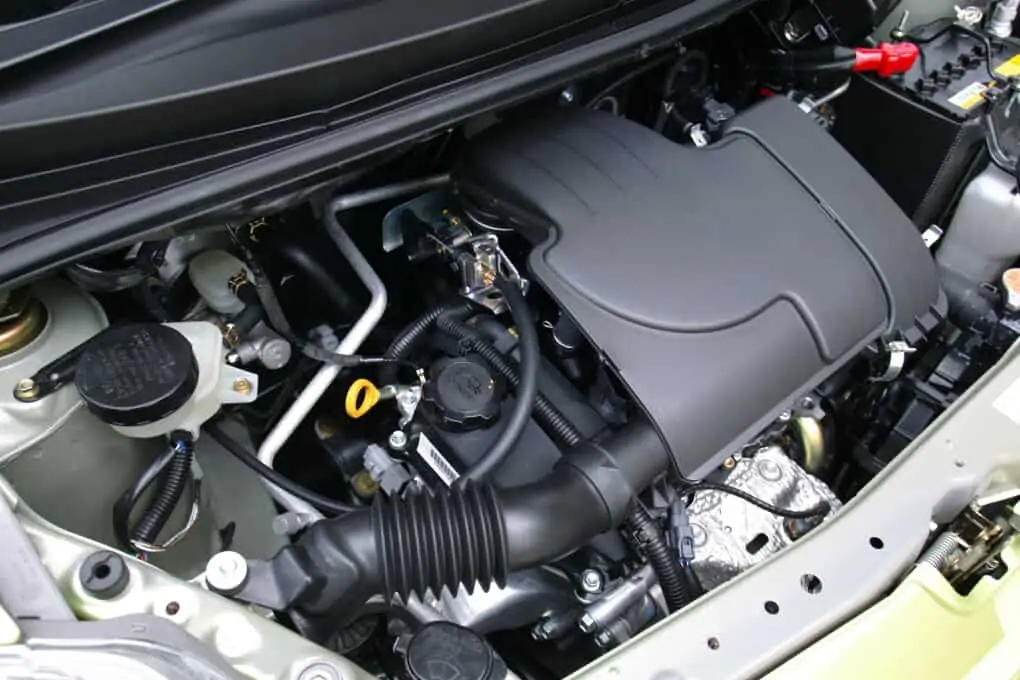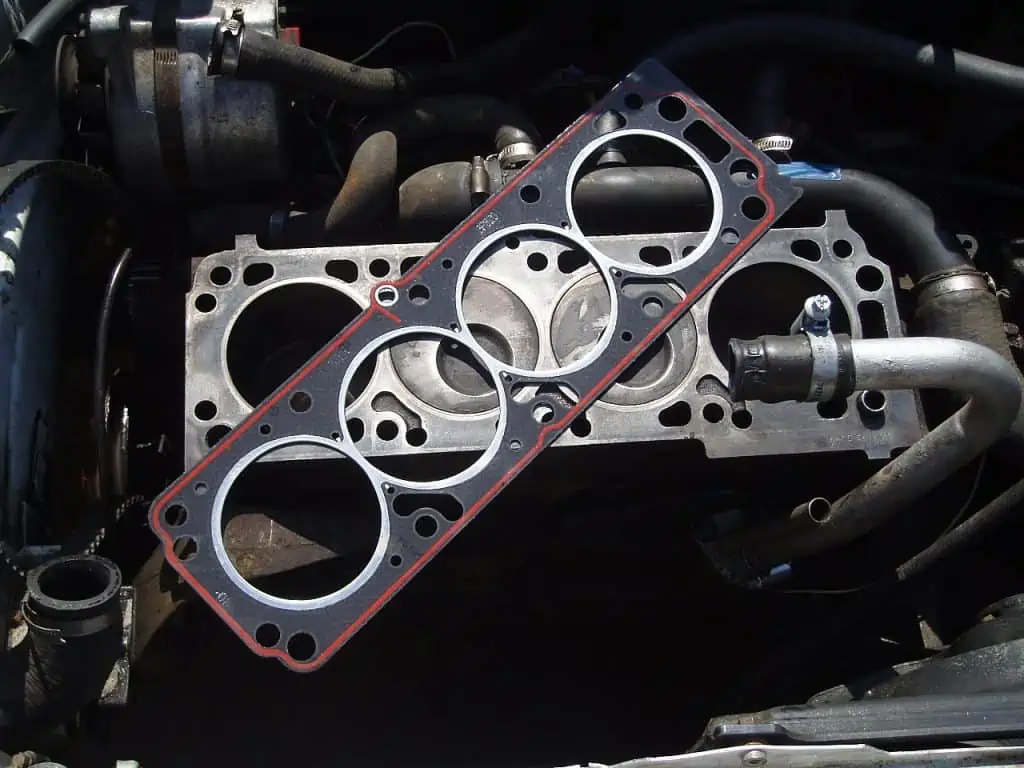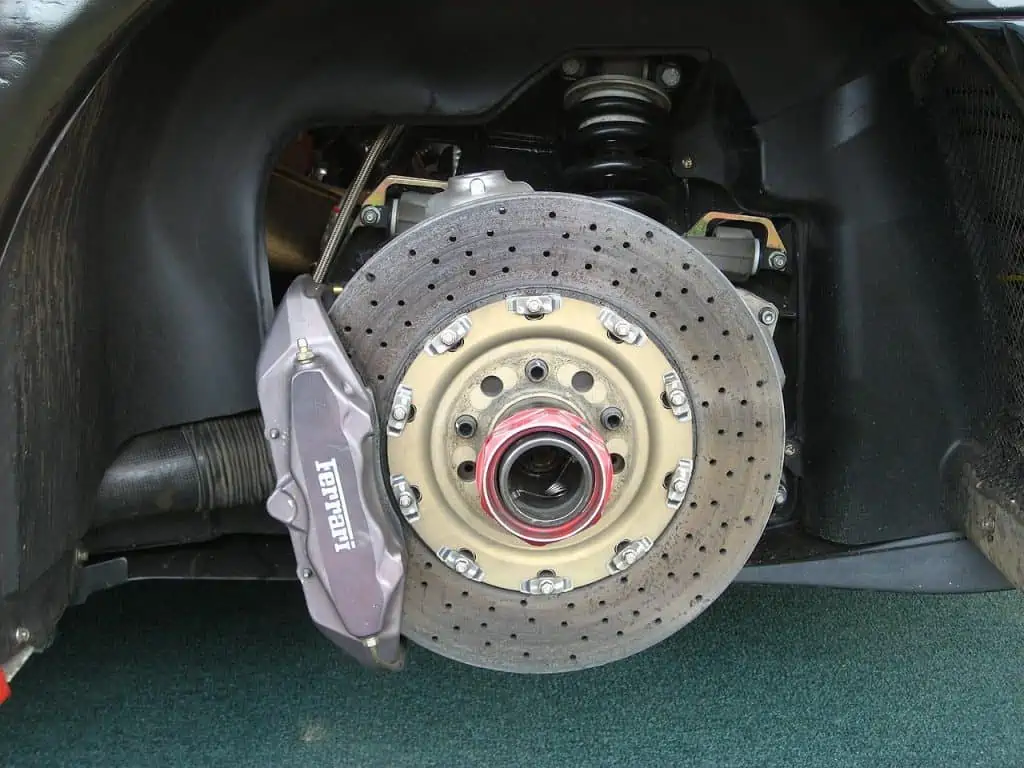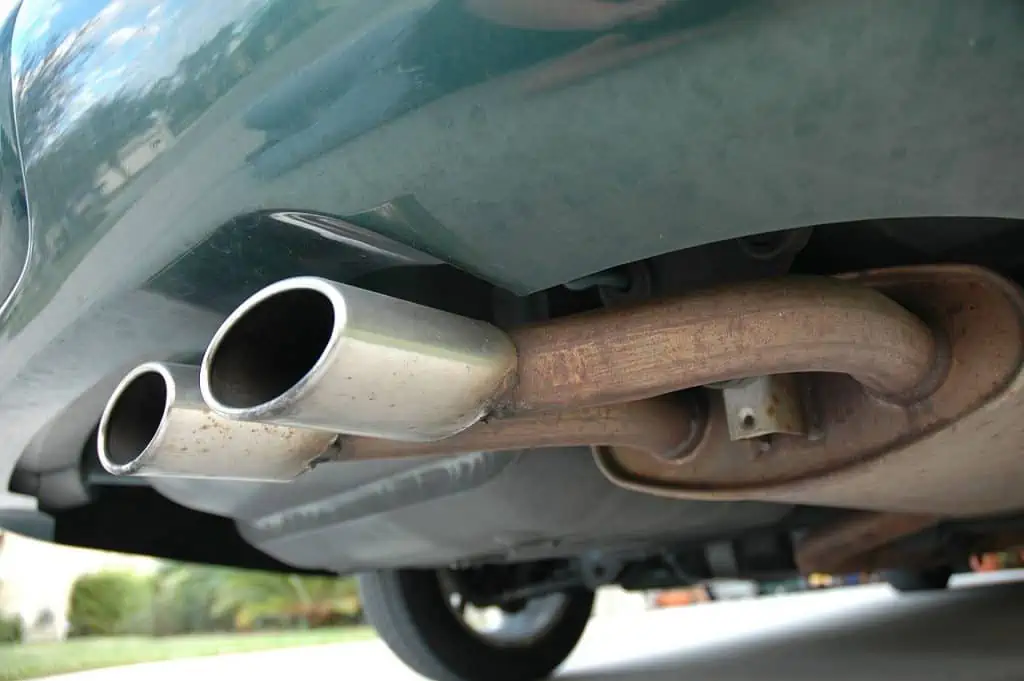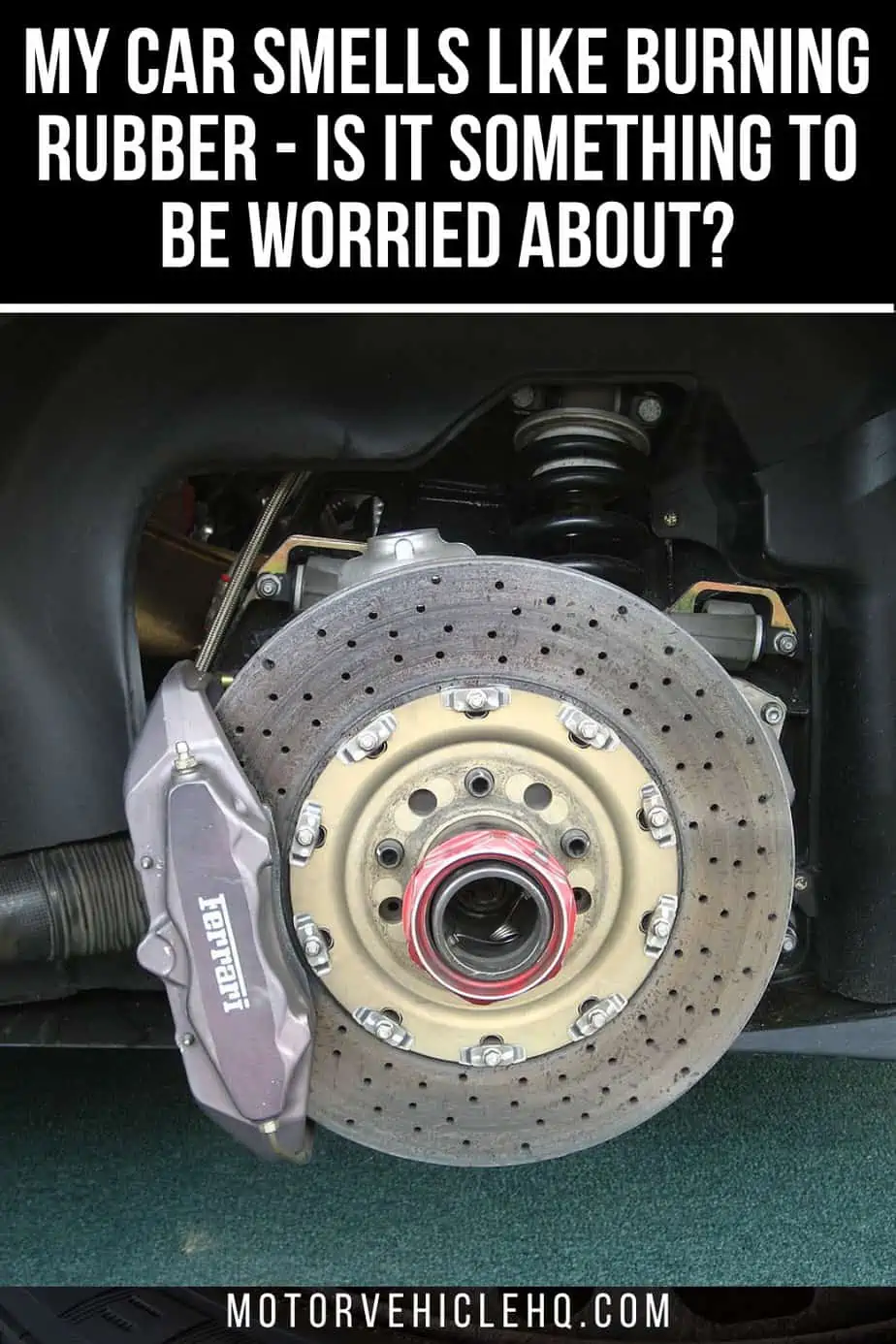Cars provide a secure and pleasant means of transportation, but as a car owner, you could occasionally run into a lot of issues. An unpleasant odor is a potential issue for vehicle owners. Various odd scents come from cars.
When your vehicle smells like burning rubber, it’s one of the many offensive odors it produces. This is one of the worst symptoms that your vehicle may display if there is an issue with the brakes, oil, or lubrication.
However, these are not the only causes of the burning rubber smell in your vehicle; there are many other potential causes as well.
They include burnt-out brakes, sliding clutch, and missing rubber hose, among other things. The air from outside the car’s cabin might potentially enter the vehicle and begin to indicate that anything is wrong with it.
Even though a burning rubber smell does not necessarily indicate a serious problem, it should not be disregarded. Try to figure out what’s going on, or have a mechanic check it out for you.
If this warning sign is disregarded, your vehicle might sustain serious harm. There could be a requirement to fix burnt rubber damage. If you disregard this issue, it might cost you a lot of money.
Car Smells Like Burning Rubber: What Causes the Car’s Burning Rubber Odor?
There are various causes for the burnt rubber odor in your vehicle. Many of the car’s rubber components are susceptible to heat-related burns.
Car rubber hose by Thiemo Schuff / CC BY-SA 3.0. The rubber hose may come into contact with the engine component that has overheated if it becomes brittle, loose, or broken. Your automobile can start to smell like burnt rubber as a result of the scorching of the rubber hose that was lost throughout the procedure.
1. Rubber Hose That Is Loose
If your vehicle smells like it’s burning rubber, it might just be that something made of rubber is burning within the engine. One of the issues causing your vehicle to smell like burnt rubber is a loose rubber hose. There are various rubber hoses in your car’s engine. The engine compartment is where you’ll primarily find the rubber hoses. Rubber hoses in a car are necessary for the engine to run as efficiently as possible.
The overheated component of the engine may come into touch with the rubber hose if it becomes weak, loose, or damaged. The rubber hose that was lost in the process can be scorched, and your car might start to smell like burning rubber as a result. Remove the faulty rubber hose and replace it if necessary to solve the issue.
2. A Drive Belt That Is Melting
Another source of the rubber-burning odor in your vehicle might be a drive belt that is melting close to the engine. Various types of belts are used to link the car’s engine to other components. The drive belt’s task is to transmit motion to other automotive components so they can continue to operate.
The drive belt will likely spin if one of the parts that are attached to it is locked up. Your vehicle starts to smell like burnt rubber as a result of heat being produced by friction on the drive belt. Defective drive belts may potentially fly off their gears and tear. They may also block the pulley from rotating.
Your vehicle may also start to smell like burned rubber if the drive belt is broken. A loud screaming sound and the unpleasant smell of burnt rubber call for immediate attention. If the drive belt issue is not addressed, the car’s engine may not start.
Replace the defective drive belt to address the melting driving belt issue. To make sure it functions correctly, establish a system of monitoring the drive belts every six months.
3. The Engine Oil Leakage
One of the most frequent reasons for a car that smells like burned rubber is a motor oil leak. When oil escapes, it might land on the engine of your vehicle and burn it up. The majority of the time, this issue will arise while going upward on a steep slope and while the vehicle is in first or second gear as the exhaust becomes hotter than usual. A burning odor from leaking engine oil may be present.
Your car’s engine has a very high likelihood of not receiving enough oil for lubrication if it leaks. The engine overheats as a result. Additionally, oil leaks might result in more hazardous issues like a burst head gasket and a broken engine block.
Additionally, it can cause your car’s engine to overheat. It is significant to notice that, in contrast to ordinary oil, high-quality synthetic oil frequently emits a strong aroma of burnt rubber. It is crucial to handle this problem right once because if too much oil is burned, a fire may result.
Because you will be unable to operate your vehicle with little oil and worry about the burning smell it generates, this issue is also one of the largest ones. Oil leaks can be caused by a variety of issues, but the most typical one is a worn gasket or gasket seal.
Consult a qualified technician right away to assist you in resolving this issue.
4. Leakage of Coolant from the Radiator
One of the causes of the burning rubber odor in your vehicle is a leaking radiator that contains coolant. The engine block of a vehicle contains a tiny tank that stores the coolant. The coolant is intended to be used for lowering the engine’s temperature to the ideal range.
The drive belt by Miya.m / CC BY-SA 3.0. If one of the components that are linked to the drive belt gets locked up, the drive belt will probably spin. The heat created by friction on the drive belt causes your car to begin to smell like burnt rubber. Drive belts with flaws might perhaps fly off their gears and rip.
The tank that contains the coolant is susceptible to leaks, just like any other tank. This can be the result of worn-out, damaged or defective seals. Some engine coolants may leak out of any breach in the tank, which might be caused by vibrations or everyday wear and tear.
Any leak near the radiator makes it possible for hot coolant to reach the rubber components around the radiator. Your vehicle smells like burned rubber because of the leak.
If you spot any indication of a coolant leak by searching beneath your car, seek the advice of a qualified technician or auto expert.
5. Clutch That Often Slips
The purpose of a clutch is to drive and shift gears. Its primary function is to force itself against the flywheel from a halt to a rolling position to match the speed of the engine and gearbox in your vehicle.
Friction permeates the whole procedure. Driving the clutch entails not fully allowing the clutch to engage the flywheel. Flywheel grinding is ongoing due to the clutch. The clutch begins to burn as a result of the intense heat produced.
In this instance, the clutch is becoming paper mache-like due to extreme friction, which is what is causing the burning rubber odor. The clutch could be replaced to address this issue.
6. A Blown Gasket
Your vehicle may also smell like burned rubber because of a blown gasket. A silicone flat piece is used as a gasket. The gasket secures the top of the engine and the engine block’s main body.
Although a gasket is not a mechanical component, it is crucial to the engine’s smooth operation. The gasket forms a seal between the two engine block parts, allowing the engine and coolant to freely circulate without coming into contact with the gasoline and air combination.
Oil leaks might be caused by a bad gasket. If the oil comes in touch with the hot engine components, such as the exhaust manifold, you will then smell burnt rubber.
7. A Car Brake That Sticks
Every vehicle owner will encounter this particular issue at some point in their life. One of the frequent issues that make your vehicle smell like burned rubber is sticking brakes.
If you’re unlucky, a sticky brake issue might potentially result in a fire. Because rubber makes up the brake pads, a stuck brake generates a lot of heat, which overheats the rubber.
Sticky brake calipers or jammed brake pads are the only causes of sticking brakes. Touch your rims carefully to see if any of them are hotter than the others to see whether you have a sticky brake. You will get your brake calipers repaired by a professional as soon as you feel that they are sticking.
8. Plastic Tangled In the Car’s Exhaust Pipe
While the smell of burning rubber may occasionally come from inside your vehicle, it can also come from foreign objects.
As you are driving your vehicle, there is a considerable likelihood that foreign plastic materials, such as plastic bags, may become caught in the engine region. Plastics that come in contact with the hot engine will melt. As a result, some rubber will start to burn near the engine.
Ignoring this issue, which won’t cost you a lot of money to fix, might make it worse. You merely need to wait until the engine has cooled before removing the plastic that has been lodged in your exhaust.
Additionally, there is a good probability that the rubber components may fracture and let fluids out of the vehicle. Let the muffler cool down before attempting to remove the plastic to solve this issue.
Car engine by Tennen-Gas / CC BY-SA 3.0. One of the reasons for the burnt rubber smell in your car is a coolant leak coming from the radiator. Vibrations or normal wear and tear might produce a break in the tank where some engine coolants could seep out.
9. A Short Circuit In the Car’s Electrical Connection
Electric short circuits are a common sort of electrical mishap that can seriously harm the electrical system in your vehicle. Another typical issue that vehicle owners run into is an electric short circuit. Additionally, it contributes to the burnt rubber smell of vehicles.
Rubber is typically used to cover cables to provide insulation and durability.
Some rubber insulations may end up burning as a result of an electrical short circuit. The stench of burnt rubber results from this. While there is a short circuit in your vehicle, the cabin is likely to smell more strongly of burnt rubber when the windows are closed.
Checking the burned rubber issue brought on by an electrical short circuit should be done right away because continuing to drive under such circumstances might seriously harm your vehicle.
10. Fuses That Are Wearing Out
Another issue connected to the short electrical circuit that is generating the unpleasant rubber odor inside your vehicle is worn-out fuses. Usually, electricity produces a lot of heat.
The wiring and several other parts of the system hold the heat once it has been created. However, if there is a deficit in the system, the heat becomes trapped in one area.
Plastics and other components are heated by electrical shorts. This causes the interior of your vehicle to smell like burned rubber. This issue may be quite significant. If the shorts get to more combustible engine components, they will catch fire.
11. A/C Compressor Overheating
A defective A/C compressor may cause a car to smell like burned rubber after turning on the air conditioning. Your car’s air conditioning compressor is operated by a belt. If there are problems within, a defective A/C compressor might produce a burning smell in two different ways.
12. A/C Compressor That Is Stuck
A/C compressor as a whole may become stuck. The belts may be grabbed when it engages. The belt becomes hot and deteriorates as a result. Your drive belts will deteriorate as a result, and you’ll notice a burnt rubber odor.
Even if there is a problem inside, the A/C compressor will still turn. This is a typical issue. The A/C compressor in your vehicle will turn on. The belts will turn it if this happens. The damaged components in the A/C compressor will start to spin. There is a great deal of friction created, which leads to a great deal of heat that begins to burn and emits the odor of burning rubber.
13. Degraded Fluids
The proper operation of your car’s engine depends on having fresh oil in it. When was the last time you replaced the oil or the transmission fluid? Changing the gearbox on your vehicle. This is crucial for your vehicle since thickening occurs as the oil starts to age. It loses the capacity to absorb heat as well. Additionally, the oil renders components ineffectively lubricated.
The atmosphere suddenly becomes heated and smells like burnt rubber. Additionally, it can sear and harm various auto components. Since the old oil can completely harm your engine, it should be emptied and changed.
14. Loss of Fluids Through Leaks
If left on a heated surface, coolant, power steering fluid, engine oil, and transmission fluid will burn. This might not be a major issue, but any leak might cause issues. The pockets in the engine and the top of the exhaust are the only places that get hot enough to burn the fluids. The fluids will burn and emit a burning odor if they enter these areas.
Head Gasket by Collard / CC BY-SA 3.0. If your car’s engine leaks, there’s a very good chance it won’t get enough oil to keep it lubricated. As a result, the engine overheats. Additionally, more dangerous problems like a ruptured head gasket and a cracked engine block might arise as a result of oil leakage.
15. Burning Heater Debris
You can also notice a burnt rubber odor when you switch on your heater. This indicates that a flaming object has made its way into the vents. When the heat is turned up, anything within the heater vent, including plastic bags and worn-out rags, might emit the odor of burnt rubber.
Is It Safe to Keep Driving When the Car Smells Like Burning Rubber?
While it is possible to drive a car that smells like burning rubber, this is not advised. A burning-smelling car should not be driven at all. This is due to the need of determining all potential causes of a burning smell in your vehicle. If left unattended, these reasons can develop into urgent issues that are deadly and serious.
These very dangerous issues that are giving your care a burning rubber odor should be addressed as soon as they are identified. A burning rubber odor might start a fire and harm the entire engine. Your brakes may potentially be damaged by them.
When your vehicle smells like burnt rubber, you shouldn’t keep driving it; instead, you should have a professional fix it.
Car Smells Like Burning Rubber: How Can You Diagnose This Problem?
Any time you enter your vehicle, you shouldn’t breathe in the stench of burning rubber. The stench is a warning indication that something is wrong and has to be corrected right away. If the issue is resolved as quickly as feasible, you will undoubtedly save a lot of money. If you notice the smell of burning rubber inside your car, follow these instructions.
1. Drive and Park the Car In a Safe Area
Before touching anything inside your vehicle, you should first find a nice, secure spot to park, look over your vehicle, and wait for the engine to cool. You’ll need a secure workspace where you feel at ease. After finishing this, wait until the engine has cooled before touching anything.
2. Look for Any Tangled Trash
Checking to see whether any plastic bags or rubber objects are lodged in the exhaust pipe or below the engine is the next step. Make careful to get rid of any if there are any.
3. Inspect the Car Engine
Then you should begin closely inspecting the engine’s parts. Look for any burned insulation, loose wires, or broken coolant reservoirs. Because electrical short circuits are frequently to blame for the burning rubber smell, you should also check for them.
4. Inspect the Wheels and the Brakes
Now check the wheels and brakes to determine if the calipers are malfunctioning in any way. Another factor that contributes to a car smelling like burnt rubber is a seized caliper piston. Additionally, make sure the tread on the tires is in good condition and free from damage because uneven tread can result in strange interactions with the road surface.
As a result, there may be more excessive friction when the car is moving.
Keep an eye out for any other clues that can put you in the direction of the source of the odor. Taking the car’s exhaust smoke as an illustration. You should check for oil leaks under the car first just for this reason.
Brake disc by The359 / CC BY-SA 3.0. The sole reasons for stuck brakes are sticky brake calipers or locked brake pads. If your automobile starts to smell like burnt rubber, the friction created by sticky brakes may be to blame. If you have a stuck brake, feel your rims carefully to check if any of them are hotter than the rest.
5. Inspect Your Car Clutch
Have the clutch checked out first to determine whether it needs to be replaced because of wear. It’s crucial to develop good grasping and shifting methods to prevent this. Ensure that you have adequate space in your driving posture to comfortably pull your foot away from the clutch pedal and rest it on the floor.
A well-maintained clutch may last up to 80,000 miles if you can regulate it. But if you abuse it, you’ll need to replace several clutch/transmission system components considerably more quickly, perhaps as soon as you reach 35,000 miles. And that won’t be inexpensive.
As a general rule, avoid riding the clutch since doing so often results in early wear and tear and, thus, early replacement. The practice of needlessly keeping the clutch pedal depressed down is known as “riding the clutch.”
When changing gears, the clutch should be entirely disengaged by being pressed to the floor with your left foot. The clutch should then be fully engaged again by raising your foot off the pedal. You can shift gear smoothly by fully disengaging before reengaging since this stops the gears from slamming into one another.
As a general rule, release the clutch as near to the engine speed that corresponds to the gear and vehicle speed as feasible. To make a smoother transition when upshifting, you must first let the engine speed drop before releasing the clutch.
In contrast, you must press the accelerator harder while downshifting before letting off the clutch. Smoother transitions immediately equate to less clutch wear and cheaper upkeep.
Should I Repair or Replace the Faulty Parts?
When you’re done checking, you ought to be able to identify the issue’s root cause. The next thing to do is to fix or replace any worn-out or broken parts that may be the cause of your car’s burning rubber odor. Some of these parts, such as the slack cables, will merely require retightening, whilst other parts, such as the engine oil, would require replacement.
You should always verify that all of the issues have been resolved once you have resolved these vehicle issues. The next step is to test-drive your vehicle to make sure the burning rubber odor is absent. You will also give the engine and exhaust a chance to warm up by taking a test drive. This will make it simple to determine whether the smell of burning rubber is there.
Additionally, you will be able to feel the state of other automotive parts, such as the brakes and wheels, and determine whether or not your car is in good shape.
What Parts Should You Repair or Replace?
- Look for fluid leaks in the seals. To try to fix the leak manually, there are several stop leak products available. Before incurring a more expensive repair cost, you must have the gaskets examined if the additive does not solve the problem.
- Don’t press on the clutch continuously. Hold the clutch and brake pedals down at the same time if you’re stopped on a slope. Release the clutch pedal gradually when you sense the clutch engaging in first gear. As you effortlessly let off of the clutch, accelerate the vehicle. Thus, excessive friction on the clutch plate will be prevented. If the clutch is worn out, a replacement is required.
- If it turns out to be a leaky gasket that was missed during the oil change, having it replaced as soon as possible will save you money on future engine repairs.
Exhaust pipe muffler by Steevven1 / CC BY 2.5. Coolant, power steering fluid, engine oil, and transmission fluid will all burn if left on a hot surface. The only areas that get hot enough to burn the fluids are the pockets in the engine and the top of the exhaust. If the fluids get into these places, they will burn and smell like burning rubber.
- The drive belt needs to be replaced. The possibility exists that a stalled air conditioning compressor will grasp the belt and wear it out. The heat produced by the friction will harm the belt and give off a burning odor. It will be necessary to replace the damaged belt and, in certain situations, the A/C compressor.
- Efficient acceleration You can prevent the clutch from overheating and being damaged by not letting the clutch drop onto the clutch plate while accelerating.
- Change the brake pads. In addition to taking driving lessons, you should replace your brake pads if they are so worn that they emit a burning odor before your brakes completely stop working. A costly lesson will be learned if the grinding is neglected and requires more expensive repairs to the calipers and rotors.
- While the vehicle is idle, look beneath the hood. Try to pinpoint the location where the burning odor is coming from. You could even catch a glimpse of a smoke wisp. You can avoid becoming stuck later on if you can identify a leaky hose or a worn-out or drooping belt and fix or replace them right away.
Car Smells Like Burning Rubber: The Conclusion
It’s never a good thing for you or your vehicle if the interior of the vehicle smells like burned rubber. However, this fragrance is always quite helpful since it enables you to spot any issues with your car’s motor and other components.
To avoid any significant issues, you should search for the source of the burning rubber smell as soon as you discover it. This might be a clutch or brakes issue, a coolant or oil leak, or any number of other things.
Additionally, it’s crucial to have your vehicle checked out by a qualified mechanic or professional technician as soon as you notice a burning rubber odor emanating from it. These issues are all significant and should not be disregarded.
Always keep in mind that smelling burnt rubber after driving indicates a significant problem that requires care. You may avoid more costly repairs by taking care of these issues before they become more serious.
A vehicle that has been properly maintained will always put you one step ahead of any potential issues. As a car owner, you should regularly get your vehicle serviced to ensure that all of its parts are functioning properly. You’ll be able to save money that you may have spent on repairs thanks to this. Your car’s lifespan is determined by proper maintenance.
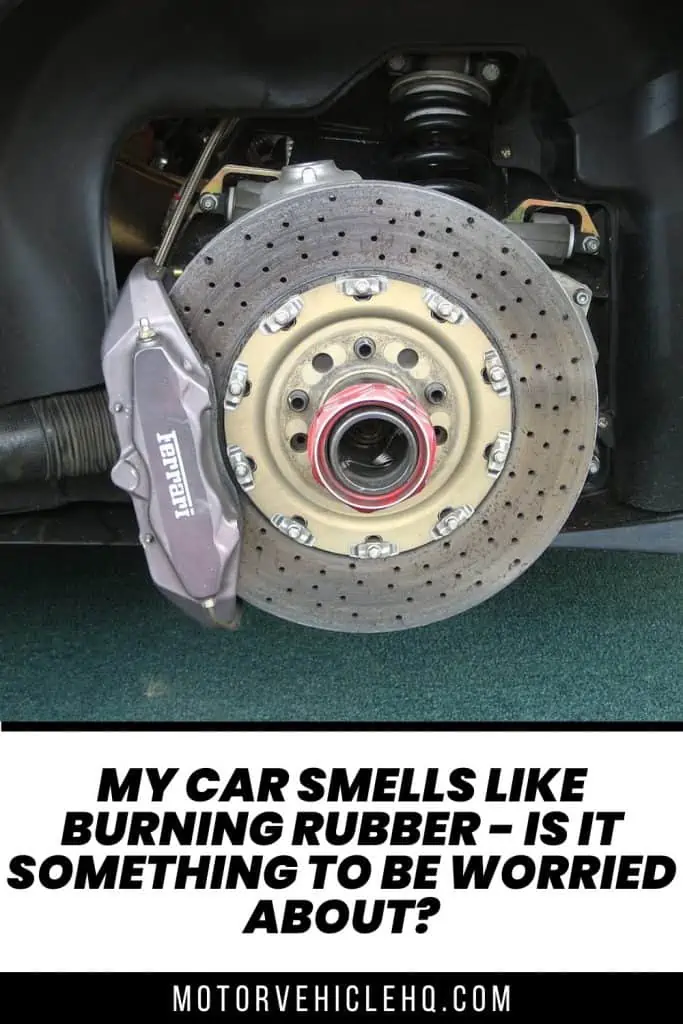
Brake disc by The359 / CC BY-SA 3.0.

Jim Wicks is the founder of MotorVehicleHQ. With over two decades of experience in the automotive industry and a degree in Automotive Technology, Jim is a certified car expert who has worked in various roles ranging from a mechanic, car dealership manager, to a racing car driver. He has owned more than 20 cars over the past 15 years. Ask him about any vehicle you see on the road and he can tell you the make, model and year. He loves the aesthetics of all things cars, and keeps his vehicles in pristine condition.
In his free time, Jim enjoys getting his hands dirty under the hood of a classic car or taking long drives along the country roads. His favorite car? A 1967 Shelby GT500, a true classic that, according to Jim, “represents the pure essence of American muscle.”
